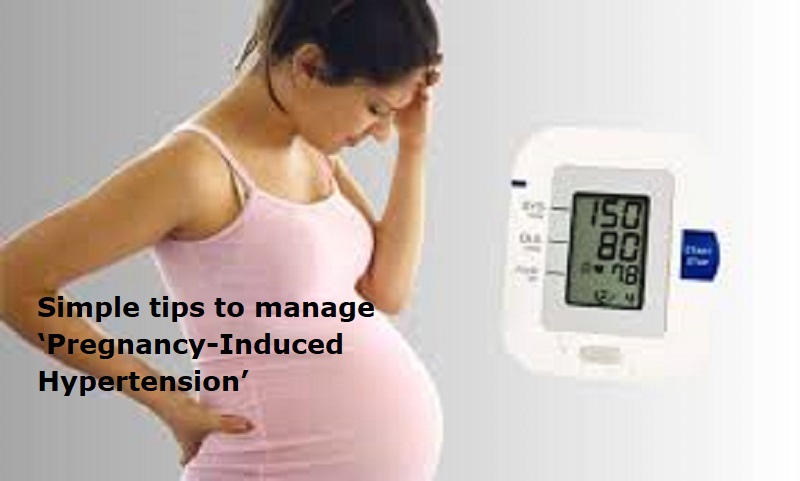
Mumbai: Pregnancy-Induced Hypertension or gestational hypertension is a condition characterised by high blood pressure that develops after 20 weeks of pregnancy in women who previously had normal blood pressure. It occurs due to changes in the body during pregnancy.
Pregnancy-Induced Hypertension requires careful management to prevent complications for both the mother and baby.
Tips to manage gestational hypertension:
1. Regular prenatal visits
Monitoring blood pressure and the baby’s development helps detect any complications early on.
2. Monitor blood pressure at home
Keeping track of blood pressure levels can help identify any sudden changes that may need medical attention. Use a reliable home blood pressure monitor as directed by your healthcare provider.
3. Eat a healthy diet
A balanced diet helps maintain a healthy weight and reduces the risk of complications related to gestational hypertension. Focus on consuming a variety of fruits, vegetables, whole grains, lean proteins, and low-fat dairy. Limit salt, sugar, and processed foods.
4. Reduce salt intake
Lowering salt intake can help reduce blood pressure by preventing fluid retention
5. Stay hydrated
Proper hydration supports overall health and can help manage blood pressure. Drink plenty of water throughout the day, aiming for at least 8-10 glasses.
Also Read: Simple remedies to soothe a sore throat
6. Engage in regular physical activity
Exercise can help lower blood pressure and improve overall cardiovascular health. Engage in moderate activities like walking, swimming, or prenatal yoga for at least 30 minutes most days of the week, after consulting with your healthcare provider.
7. Get enough rest
Adequate sleep and rest help reduce stress and support overall health, which can positively affect blood pressure. Aim for 7-9 hours of sleep per night and take short naps during the day if needed. Practice good sleep hygiene, such as maintaining a regular sleep schedule and creating a restful environment.
8. Manage stress
Reducing stress can help lower blood pressure and improve overall well-being. Practice relaxation techniques such as deep breathing, meditation, prenatal massage, or gentle stretching exercises.
9. Avoid caffeine & alcohol
Caffeine and alcohol can raise blood pressure and are not recommended during pregnancy.
10. Follow medical advice & medication regimens
Take prescribed medications as directed and report any side effects to your healthcare provider

Post Your Comments